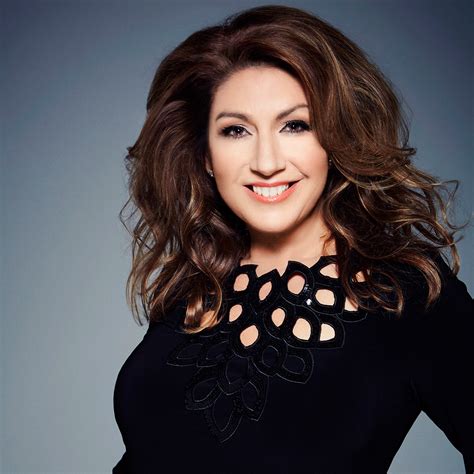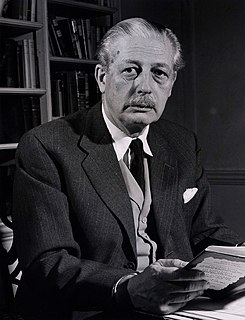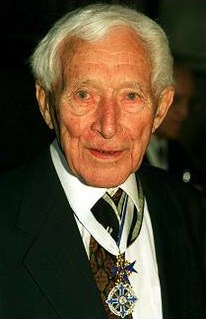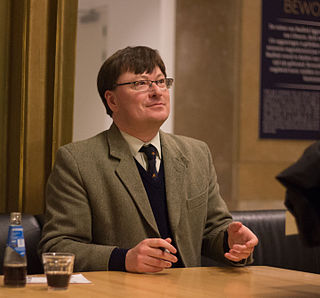A Quote by Albert Einstein
I am an adherent of the ideal of democracy, although I well know the weaknesses of the democratic form of government. Social equality and economic protection of the individual appeared to me always as the important communal aims of the state. Although I am a typical loner in daily life, my consciousness of belonging to the invisible community of those who strive for truth, beauty, and justice has preserved me from feeling isolated.
Quote Topics
Aims
Although
Always
Am
Appeared
Beauty
Belonging
Communal
Community
Consciousness
Daily
Daily Life
Democracy
Democratic
Economic
Equality
Feeling
Form
Government
Ideal
Important
Individual
Invisible
Isolated
Justice
Know
Life
Loner
Me
Preserved
Protection
Social
Social Equality
State
Strive
Those
Truth
Typical
Weaknesses
Well
Related Quotes
The democratic ideal springs from the ideas of liberty, equality, majority rule through free elections, protection of the rights of minorities, and freedom to subscribe to multiple loyalties in matters of religion, economics, and politics rather than to a total loyalty to the state. The spirit of democracy is the idea of importance and worth in the individual, and faith in the kind of world where the individual can achieve as much of his potential as possible.
The aim of life is no more to control the mind, but to develop it harmoniously; not to achieve salvation here after, but to make the best use of it here below; and not to realise truth, beauty and good only in contemplation, but also in the actual experience of daily life; social progress depends not upon the ennoblement of the few but on the enrichment of democracy; universal brotherhood can be achieved only when there is an equality of opportunity - of opportunity in the social, political and individual life.
In the many forms of government which have sprung up there has always been an acknowledgement of justice and proportionate equality, although mankind fail in attaining them, as indeed I have already explained. Democracy, for example, arises out of the notion that those who are equal in any respect are equal in all respects; because men are equally free, they claim to be absolutely equal.
I stand before you today as a candidate for the Democratic nomination for the presidency of the United States. I am not the candidate of black America, although I am black and proud. I'm not the candidate of the women's movement of this country, although I am a woman, and I'm equally proud of that. I am not the candidate of any political bosses or fat cats or special interests... I am the candidate of the people...
I am not an optimist, because I am not sure that everything ends well. Nor am I a pessimist, because I am not sure that everything ends badly. I just carry hope in my heart. Hope is the feeling that life and work have a meaning. You either have it or you don't, regardless of the state of the world that surrounds you. Life without hope is an empty, boring, and useless life. I cannot imagine that I could strive for something if I did not carry hope in me. I am thankful to God for this gift. It is as big as life itself.
What we are seeing in cities such as Chicago, Athens and other dead zones of capitalism throughout the world is the beginning of a long struggle for the institutions, values and infrastructures that make critical education and community the center of a robust, radical democracy. This is a challenge for young people and all those invested in the promise of a democracy that extends not only the meaning of politics, but also a commitment to economic justice and democratic social change.
I have been accused of being ignorant of economics (although I am the founder and Chairman of the Board of a company which publishes seven professional economic newsletters), of being ignorant of sociology (although I am trained in sociology and was C. Wright Mills' research assistant at Columbia), of being unable to use statistics (although I earned my living as a professional statistician for five years) and of ignoring political factors (although all my graduate training was in political science).
I am against revolution and am proud of it. Democracy cannot be created through revolutions. The most important dichotomy that I make for a society is between those who support democracy and human rights, and those who oppose it. In a totalitarian state, the state views any act of an individual to be political in nature. For example, the clothing that a person wears in a modern state is a private affair whereas in the Islamic Republic all women are forced to wear the hijab (Islamic attire). When women push their headscarf back an inch or two, this is interpreted to be a political act.
The desire to live life to its fullest, to acquire more knowledge, to abandon the economic treadmill, are all typical reactions to these experiences in altered states of consciousness. The previous fear of death is typically quelled. If the individual generally remains thereafter in the existential state of awareness, the deep internal feeling of eternity is quite profound and unshakable.
Although I am still in favour of a National Government in these difficult times, and shall probably be found in the great majority of cases in the Government Lobby, there are some issues that have arisen, or are likely to arise, upon which I am unable to give the Government the support which it has, perhaps, the right to expect from those receiving the Government Whip. It occurs to me, therefore, that it would perhaps be more satisfactory if I was no longer regarded as being among the supporters of the present Administration.
At Rome there were nothing even vaguely resembling modern political parties - although given the stifling impact of these, this may well have made it more rather than less democratic than many countries today - and each candidate for office competed as an individual. Only rarely did they advocate specific policies, although commenting on issues of current importance was more common. In the main voters looked more for a capable individual who once elected could do whatever the State required.
Statement of Being. There is one Mind, and I AM that Mind. That Mind is eternal, and it is Life. I am that Mind, and I am ETERNAL LIFE. That Mind knows no disease; I am that Mind, and I am HEALTH. That Mind is the source of all Power, and cannot know doubt nor fear; I am that M ind, and I am POW ER and PEACE. That M ind knows only Truth and knows ALL truth; I am that M ind, and I am KNOW LEDGE and WISDOM . All things created and uncreated, are in that Mind; I am that Mind, and I am WEALTH and PLENTY. I am the WAY, and the TRUTH, and the LIFE; the LIGHT in me shines out to bless the world.




































